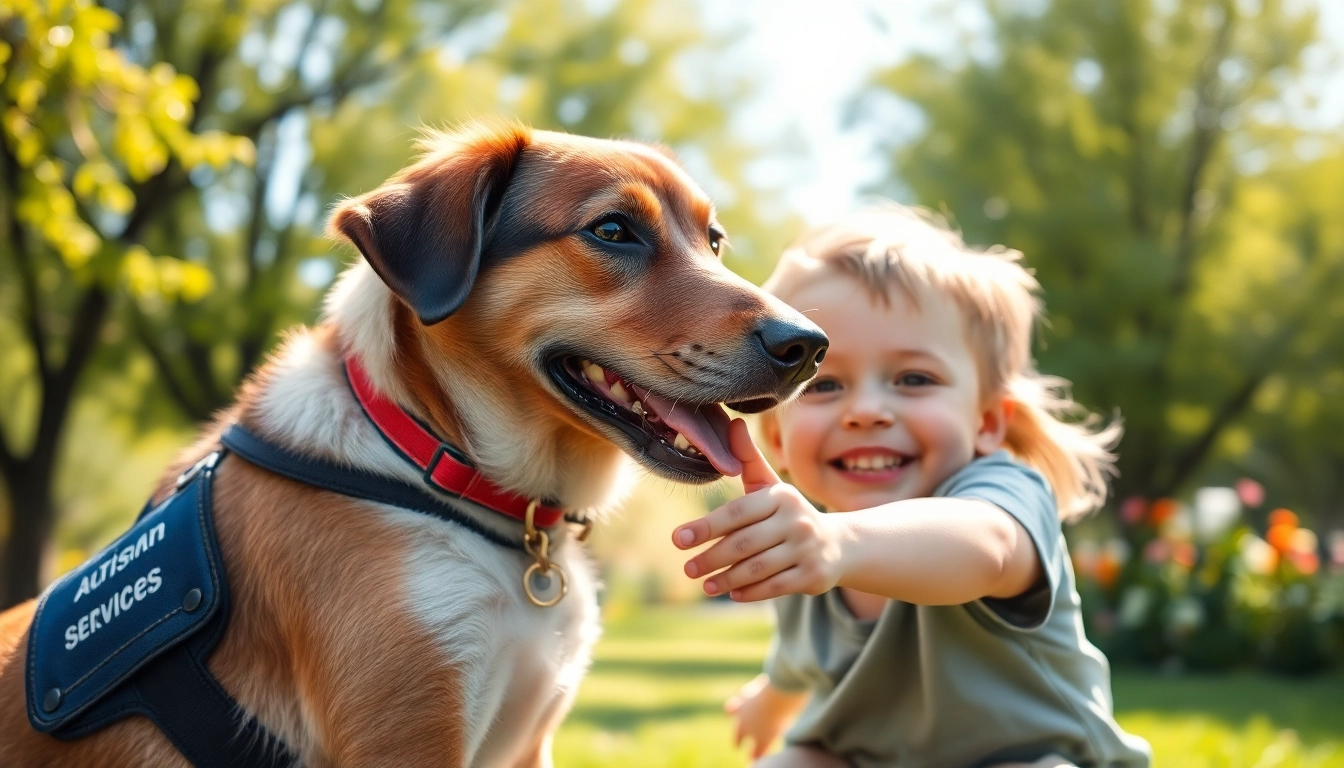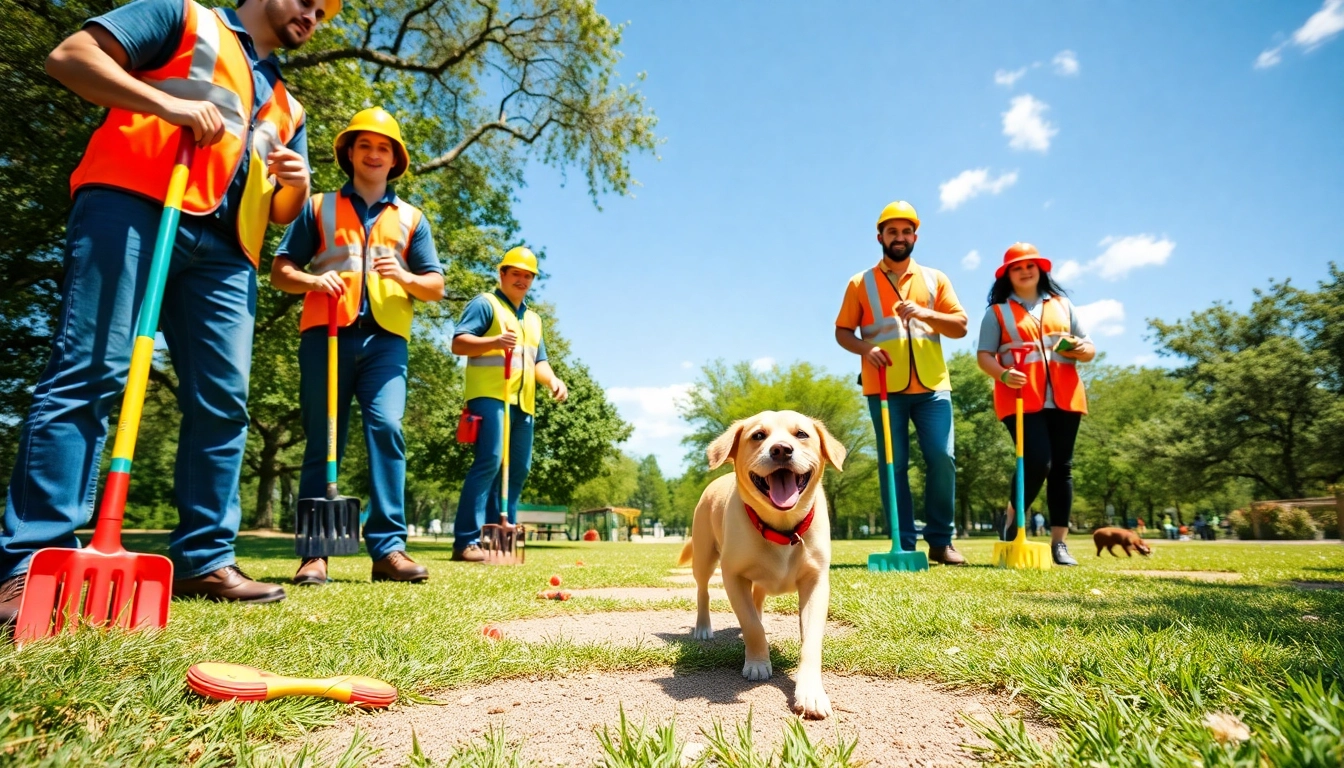Finding the Right Autism Service Dogs for Sale to Enrich Lives
Understanding Autism Service Dogs
Autism is a complex developmental condition that impacts how individuals communicate and interact with others. For some families, autism service dogs can be life-changing companions that provide emotional support, safety, and assistance in daily activities. Families seeking autism service dogs for sale may wonder how these remarkable animals can positively impact their loved ones’ lives. This article will provide comprehensive insight into autism service dogs, the benefits they offer, and essential factors to consider when looking to incorporate one into your family.
What are Autism Service Dogs?
Autism service dogs are specially trained canines that provide support to individuals diagnosed with autism spectrum disorders (ASD). These dogs are trained to perform specific tasks that cater to their handler’s unique needs. For example, they may help with sensory processing by providing tactile stimulation or aiding in social interactions by encouraging communication. Their presence can also help in mitigating anxiety and calming meltdowns in stressful situations.
Benefits of Autism Service Dogs for Families
There are numerous benefits associated with autism service dogs, particularly for families navigating the challenges of autism. These dogs can:
- Provide Emotional Support: Many individuals with autism experience a heightened sense of anxiety or emotional distress. A service dog can offer comfort, helping to reduce feelings of isolation and providing companionship that can improve emotional well-being.
- Enhance Safety: Service dogs can assist with wandering behaviors common among individuals with autism. For instance, they can be trained to lead their handlers back to safety if they become lost.
- Encourage Socialization: Interaction with a service dog can be a bridge for social engagement. Families may find that the presence of a dog draws in others and facilitates conversations that might not otherwise occur.
- Assist with Daily Tasks: Autism service dogs can be trained to help with specific tasks, such as reminding their handlers to take medications or helping to navigate crowded spaces.
Common Misconceptions about Autism Service Dogs
Despite their numerous benefits, several misconceptions exist regarding autism service dogs. Some common misconceptions include:
- They are Pets: Unlike emotional support animals, service dogs undergo extensive training and are considered working animals, not pets.
- Any Dog Can Be a Service Dog: Not all dogs possess the temperament or skills necessary to become a service dog. Specific breeds may be more suited to this role due to their natural behavior and disposition.
- Ownership Means Independence: While service dogs help foster independence, they require significant training and responsibility from their handlers and families.
What to Consider When Looking for Autism Service Dogs for Sale
Evaluating the Needs of Your Family
Before seeking autism service dogs for sale, it’s crucial for families to evaluate their specific needs. Consider the following:
- Assess the Individual’s Unique Needs: Determine what tasks the service dog might need to perform. For example, does the individual have difficulty with social interactions, or are they prone to anxiety in crowds?
- Evaluate the Family’s Lifestyle: Consider the lifestyle of family members, including activity levels, living situation, and the ages of other children. A family that spends a lot of time outdoors might require a more energetic dog.
- Discuss Expectations and Responsibilities: It’s essential to have a family discussion about what everyone expects from the service dog and the responsibilities that come with dog ownership.
Choosing the Right Breed for Autism Assistance
Choosing the right breed for your family’s needs is essential. Some breeds are known to be particularly well-suited for service work, including:
- Labrador Retrievers: Known for their friendly temperament and intelligence, they are often bred for service work and excel in social situations.
- Poodles: With their hypoallergenic coats and high intelligence, Poodles are adaptable and trainable, making them great service dogs.
- Golden Retrievers: These affectionate dogs are known for their patience, gentleness, and versatility.
Preparing Your Home for an Autism Service Dog
Before bringing an autism service dog into your home, it’s crucial to prepare an environment conducive to their success:
- Create a Safe Space: Designate an area in your home where the dog can feel comfortable and safe. This could be a quiet room with their bed and toys.
- Establish Boundaries: Ensure that family members understand and respect the service dog’s working status to reduce distractions and interference.
- Gather Necessary Supplies: Invest in high-quality food, toys, grooming supplies, and any specific tools required for training and care.
Training and Certification for Autism Service Dogs
How Autism Service Dogs are Trained
Training is a critical aspect of ensuring an autism service dog meets the specific needs of their handler. Training typically includes the following components:
- Basic Commands: Dogs must learn essential commands like sit, stay, and come, forming the foundation of their training.
- Task Training: Dogs are trained to perform specific tasks relevant to the individual’s needs, like picking up dropped items or providing tactile stimulation.
- Socialization: Proper socialization is crucial for service dogs, enabling them to interact positively with people and navigate different environments.
Understanding Certification Requirements
Some families may seek to familiarize themselves with the certification requirements pertaining to service dogs. Although there isn’t a uniform national certification process for service dogs, many organizations provide training programs with standardized evaluations to ensure the dog is fit for service. Potential owners should seek programs recognized by reputable service dog organizations.
Ongoing Training and Support for Service Dogs
Ongoing training and support are vital to maintaining a service dog’s skills and adapting to any changes in their handler’s needs. This can include:
- Refresher Training: Regularly conducting refresher training sessions can help reinforce learned behaviors and commands.
- Continuing Education: Some organizations offer additional training courses and resources for service dog handlers and families.
- Emotional Support: Families should ensure they are emotionally supported in their journey, sharing experiences and strategies with other families who have service dogs.
Cost and Funding Options for Autism Service Dogs
Understanding the Price Range of Autism Service Dogs for Sale
The cost of autism service dogs can vary greatly depending on numerous factors, including the training level, breed, and geographical location. Families may expect costs anywhere from a few thousand dollars to upwards of $20,000, depending on the complexity of the training and the organization providing the service dog. It’s crucial for families to budget not only for the initial cost but also for ongoing care, training, and veterinary expenses.
Exploring Financial Assistance Programs
Several financial assistance programs and grants exist for families seeking to bring autism service dogs into their lives:
- Nonprofit Organizations: Some nonprofits specialize in funding or subsidizing the cost of service dogs for families in need.
- Government Resources: Families can explore government programs that support disability services, which may provide reimbursement or grants.
- Community Fundraising: Many families successfully raise funds through community outreach, events, or online crowdfunding platforms.
Fundraising Ideas for Families Seeking Service Dogs
Here are some creative fundraising ideas that families can employ:
- Organize Events: Host events such as bake sales, car washes, or community fairs to engage local residents.
- Online Campaigns: Utilize social media platforms to share your story and engage supporters worldwide.
- T-shirt or Merchandise Sales: Creating and selling merchandise can help raise awareness and funds simultaneously.
Real-Life Stories: The Impact of Autism Service Dogs
Success Stories from Families
Families across the nation have found immense success through the companionship of autism service dogs. Testimonials abound of children finding comfort, safety, and stability in their pets. Many report reduced anxiety levels, fewer meltdowns, and improved social interactions since introducing their service dog into their home.
Challenges and Triumphs with Autism Service Dogs
While the journey with an autism service dog can be life-changing, it can also come with challenges. Families may face adjustments in their routine, require ongoing training, or work through behavioral issues from their dog. Nevertheless, these challenges often lead to triumphs, deepening the bond between the handler and their service dog as they navigate their journey together.
How to Share Your Story and Support Others
Sharing personal stories about autism service dogs can help raise awareness and educate others on their significance. Families are encouraged to document their experiences through blogs, social media, or community events. By connecting with others, families can provide support, share advice, and foster a sense of community among those experiencing similar journeys.














Post Comment